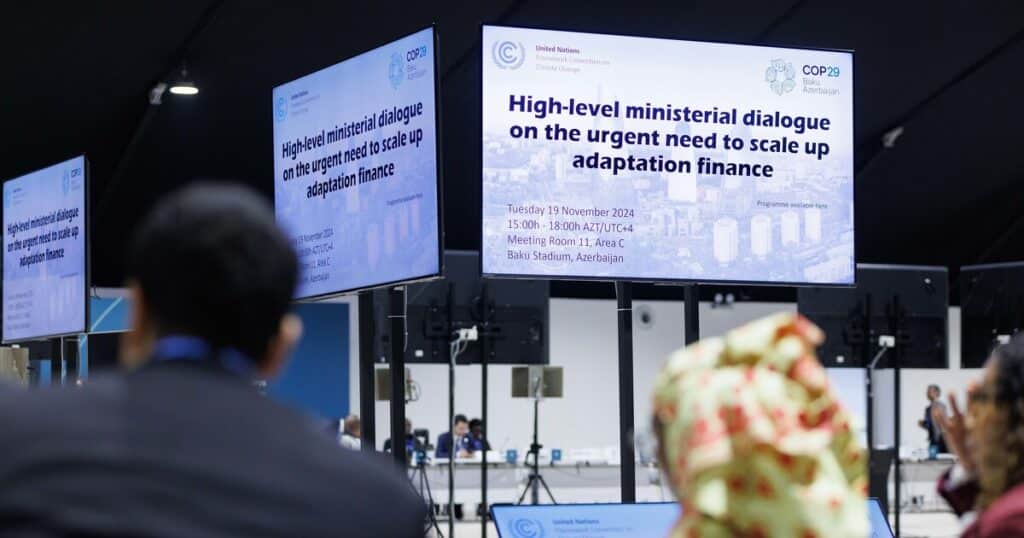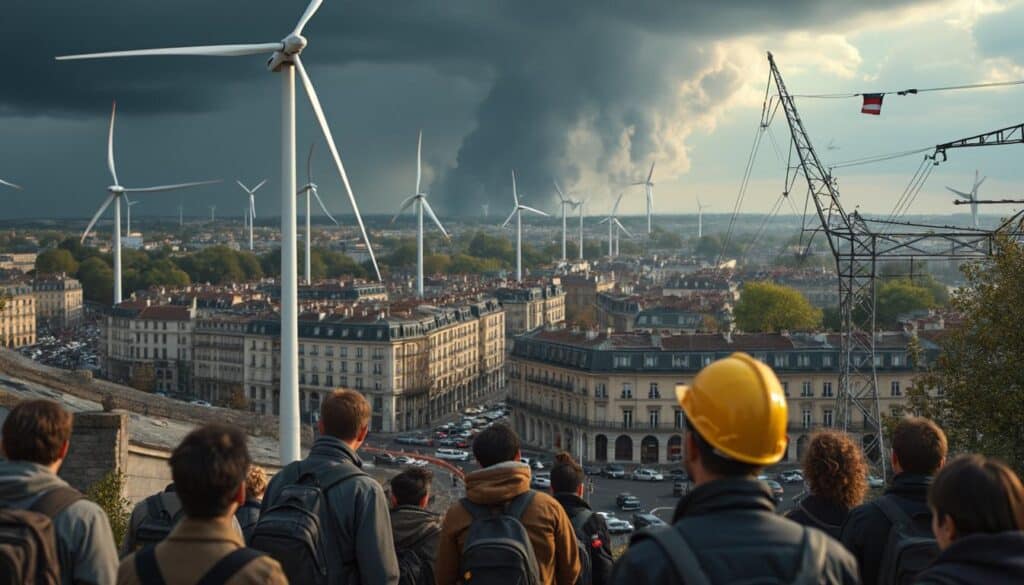On the outskirts of a sports stadium in Baku, Azerbaijan, diplomats from nearly 200 countries gathered for a climate conference that was expected to mark a significant advancement in climate financing. The final agreement, anticipated as a lifeline in the face of current climate challenges, proved frustrating for many participants. Although wealthy nations committed to tripling their annual climate financing to 300 billion dollars by 2035, the lack of concrete details and direct support for the most vulnerable countries sparked anger and bitterness among developing nations. This pact, built on promises of loans rather than grants, left a bitter taste for those hoping for a concrete solution. In this diplomatic scramble, the words “agonizing,” “toxic,” and “corrosive” resonated, symbolizing the difficulties encountered in reaching a consensus. For emerging countries, this text represents more of an empty promise than a true step forward toward a sustainable future.
At the COP29, around 200 countries met in Baku, Azerbaijan, to address the crucial issue of climate financing. In a tense atmosphere, the negotiations resulted in an agreement deemed insufficient by many participants, particularly the developing nations.
Under the intense pressure of discussions, wealthy states, such as the United States and the European Union, agreed to triple their climate aid by 2035, targeting 300 billion dollars per year. However, the outcome did not satisfy many countries, including India and Kenya, due to their failure to reach a consensus on the distribution of financial responsibilities.
The final agreement, without an official veto despite discontent, emphasizes the urgency of increasing global investments for climate resilience projects, particularly in vulnerable regions. Additional funding efforts from countries like China and South Korea were also solicited.
This compromise, referred to as “spit on the face” by a Panamanian diplomat, leaves a bitter taste, clearly indicating that the expectations of developing countries have not been met, and that many of them feel left behind in the fight against climate change.

COP29 and the Climate Financing Dilemma
At the COP29 held in Baku, over 190 countries convened to debate the financial stakes related to climate change. The discussions centered on the critical question of who should finance the colossal efforts needed to mitigate the effects of global warming. Rich countries and developing countries struggled to find common ground, complicating the situation from the outset. The final result, a pledge of 300 billion dollars annually in climate aid by 2035, did not meet the expectations of many vulnerable countries, who hoped for more robust and immediate support. Read more about the agreement deemed disappointing by many countries.
Despite prolonged sessions that continued until Sunday morning, the agreement reached reflects a deep geopolitical divide between developed nations and emerging ones. Efforts to integrate new global players like China and South Korea into this financial dynamic have not been sufficient to bridge the investment gap. Thus, while the target appears ambitious on paper, it heavily relies on loans rather than grants, a key factor of dissatisfaction. Discover more details about this disappointment following COP29.
Mixed Reactions to the Agreement
Reactions to this agreement were far from uniform. From the perspective of developed countries, leaders expressed satisfaction at having avoided a total failure of negotiations. However, the majority of developing countries condemned the agreement, calling it a “spit in the face.” Pacific islands, already severely threatened by rising sea levels, expressed their dissatisfaction with the lack of firm commitments for disaster resilience projects. António Guterres, the Secretary-General of the United Nations, himself expressed his dissatisfaction, hoping for a more ambitious outcome. What impact for the planet?
The atmosphere of disappointment was palpable, not only among small island states but also in countries in Africa and Latin America. The lack of minimum targets for relief projects and vulnerable regions was felt as a stark deficiency. Despite opposition to the final version, no country exercised its veto right, suggesting a collective feeling of fatigue and powerlessness in the face of colossal climate challenges.
The Future Challenges for Climate Finance
The aftermath of the COP29 will test the political will of the world. The agreement from Baku is just the beginning of a long quest toward international financial cooperation, with a tacit acknowledgment that the current financial architecture is untenable. The final text calls for a gradual shift towards more flexible and non-debt-generating financial instruments, but without concrete mechanisms to implement them right away. The “roadmap from Baku to Belém” is intended to explore these paths for upcoming summits. The commitments from rich countries.
Articles similaires
Thank you!
We will contact you soon.














